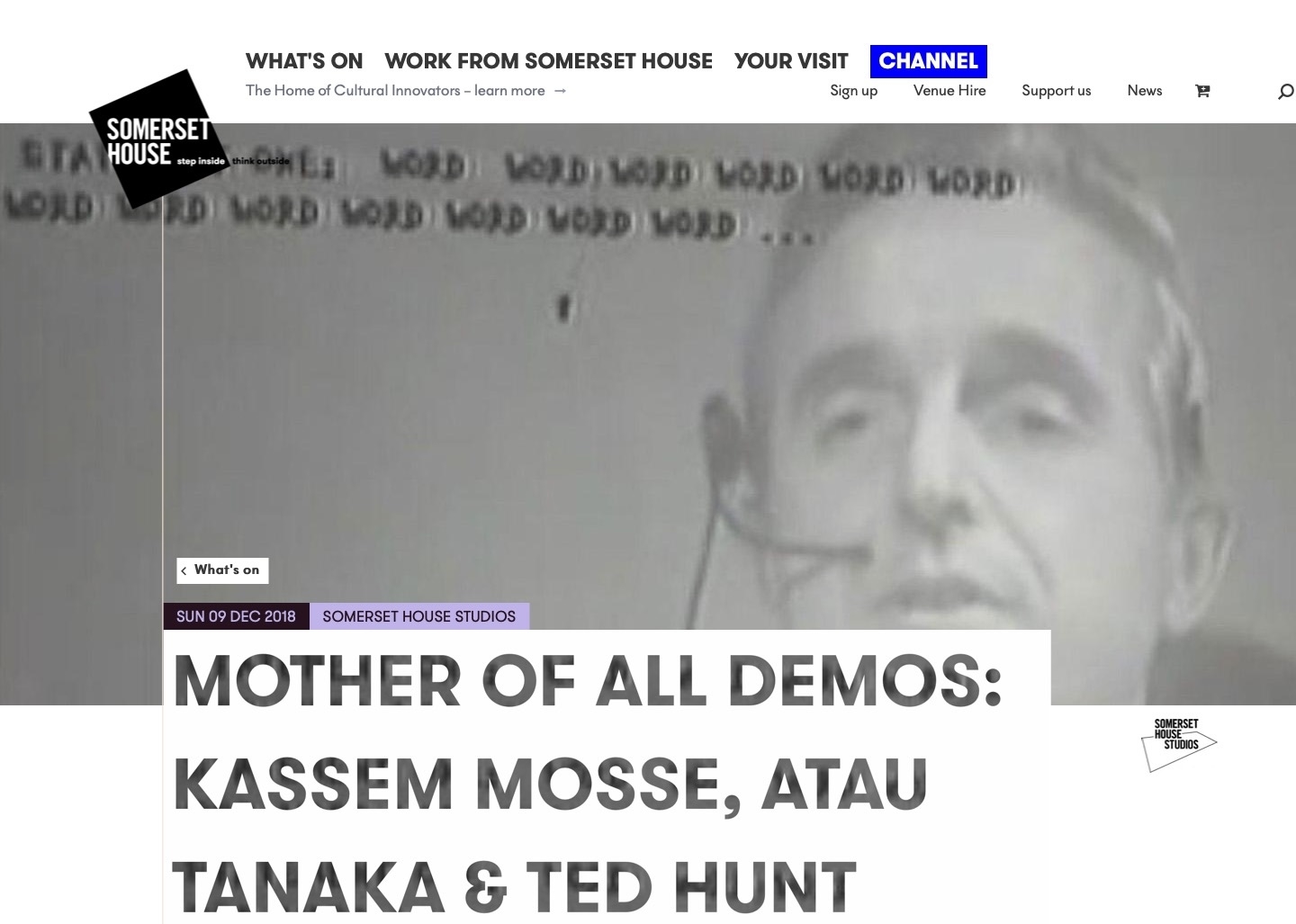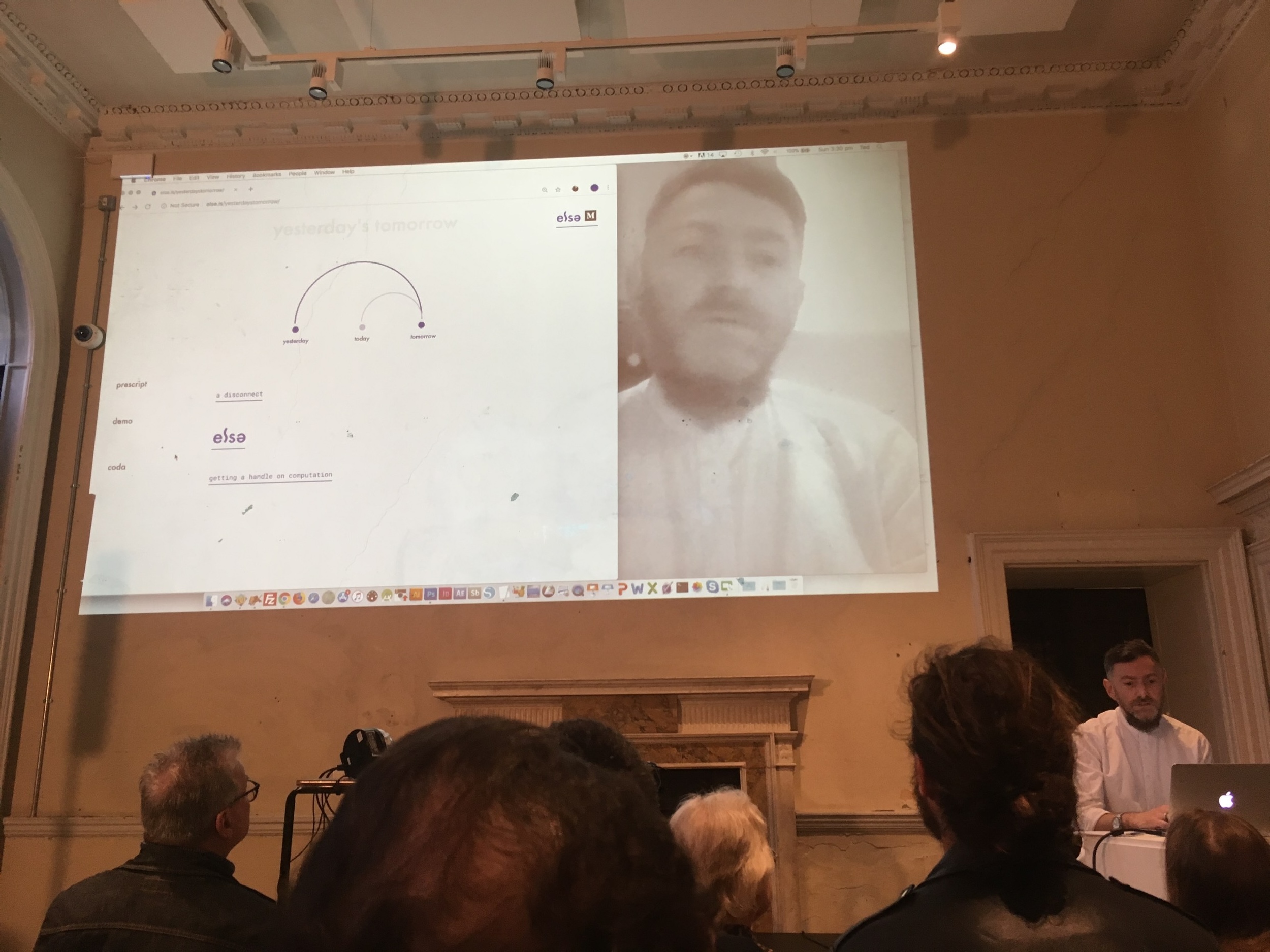The Mother Of All Demos 50th Anniversary

I was invited by Somerset House Studios and Music Hackspace to give a talk at their event Mother of All Demos a day of talks, performances, and workshops marking the 50th anniversary of Douglas Engelbart’s 1968 demo of the oN-Line System, which became known as “The Mother of All Demos”.
I spoke about my work on tools for musicians, in particular my Musical User Interfaces (MUI) and Musician’s Mirror projects. These projects are about how computers can be used to augment human abilities, to go beyond what would be possible without them.
The MUI project in particular can be traced back directly to Engelbart, both in terms of influence and people. This project was part of the work I did in 2016 as part of a summer internship at Alan Kay’s HARC research lab, with Alex Warth’s Flex group. Alan spoke about being at Engelbart’s original demo (almost missing it because of illness) and being absolutely floored by it. His group’s work at Xerox PARC was heavily influenced by Engelbart’s research, as was later work at Viewpoints Research Institute, and Bret Victor’s work, which is through whom I first became aware of Engelbart and The Demo.
I’m grateful to Tadeo Lopez-Sendon for inviting me to speak. It was my first time encountering Ted Hunt’s work, as he gave a notable talk.

Ted Hunt presenting his project Else
There was also a memorable panel where the participant Andrew Orlowski seemed to want to give the impression of an unimpressed contrarian and delivered a pre-written sounding screed about how Engelbart only managed a “what” (to achieve) and failed to deliver a “how” (to achieve it). My good friend (and thorough reader of Engelbart) Jack Armitage called him out for being inaccurate: that Engelbart did in fact go into detail about the “bootstrapping” process of how to achieve the type of big ideas he was proposing.. Orlowski left the event after the panel, so was unfortunately unable to hear some of “how” Engelbart’s work had gone in to being an influence of us later speakers.